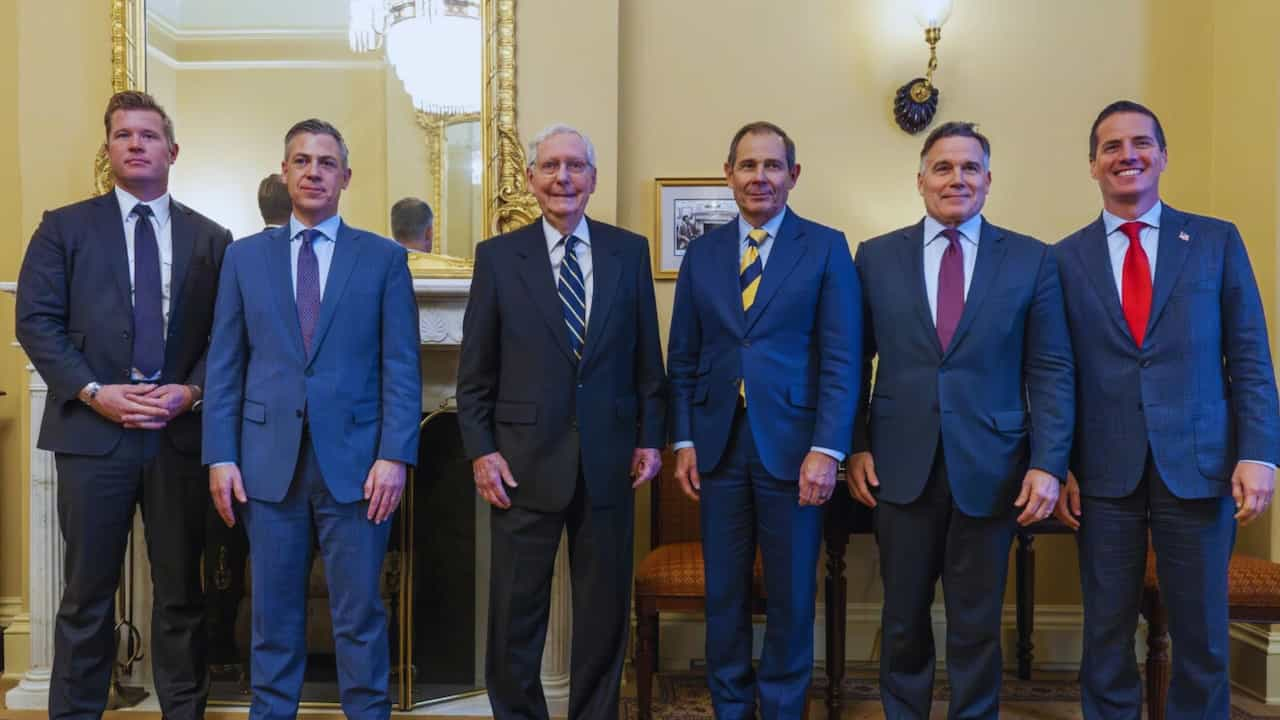Historic Senate Leadership Battle Unfolds as Trump Era 2.0 Begins
In a pivotal moment for American politics, Senate Republicans are gathering today behind closed doors to select their new majority leader, marking the end of Mitch McConnell’s historic tenure and potentially reshaping the future of both the Senate and the Republican Party.
The Contenders
Three seasoned senators are vying for the top position:
- John Thune (South Dakota): Current Republican whip and McConnell’s second-in-command
- John Cornyn (Texas): Former whip with extensive Senate experience
- Rick Scott (Florida) The outsider candidate is positioning himself as Trump’s strongest ally.
Trump’s Shadow
The leadership race is unfolding against the backdrop of Donald Trump’s recent election victory, making it a crucial test of the former and future president’s influence over Congress. While Trump hasn’t officially endorsed a candidate, his presence looms large over the selection process.
The Stakes
The choice facing Republican senators today goes beyond simple leadership selection. It represents a fundamental decision about the Senate’s future direction:
- Continue the traditional McConnell approach of institutional stability.
- Embrace a more aggressive, MAGA-aligned stance under new leadership.
Campaign Strategies
Each candidate has taken a distinct approach to winning votes:
- Thune and Cornyn have worked within the Senate, focusing on one-on-one relationships and fundraising.
- Scott has run an outside campaign, appealing directly to Trump’s base and gathering support from MAGA influencers.
Key Changes Ahead
All candidates have pledged to significantly alter McConnell’s leadership style.
- More power to individual senators
- Better communication within the conference
- There is more flexibility in aligning with Trump’s agenda.
The Process
Today’s selection will happen through a secret ballot, with senators meeting in a ceremonial Capitol space. The process requires:
- Candidate nominations by fellow senators
- Individual speeches from candidates
- There are several voting rounds until a majority is achieved.
Implications
The outcome will significantly impact:
- The Senate’s relationship with Trump
- Legislative priorities for 2025
- There is a balance between executive and legislative power.
- What is the future of Senate traditions and procedures?
This leadership change marks a critical turning point in American politics, potentially setting the tone for Trump’s second term and the broader direction of the Republican Party.
